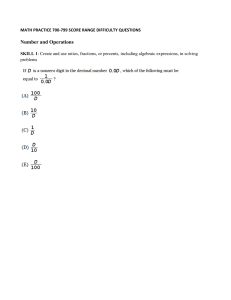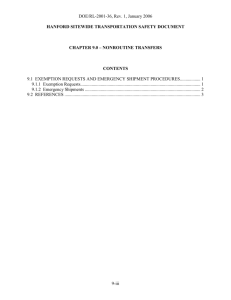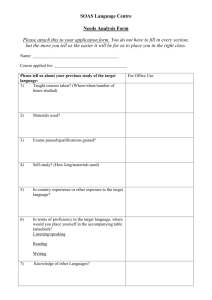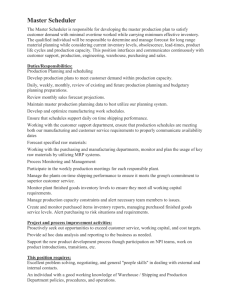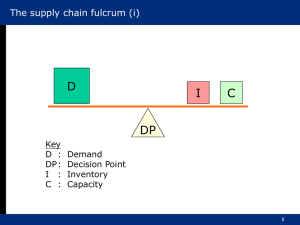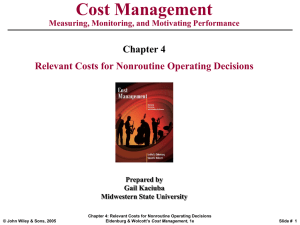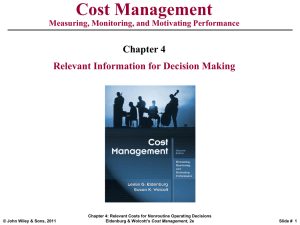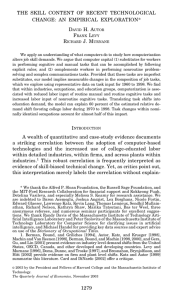Financial Management & Nonroutine Decision Making – MDA
advertisement
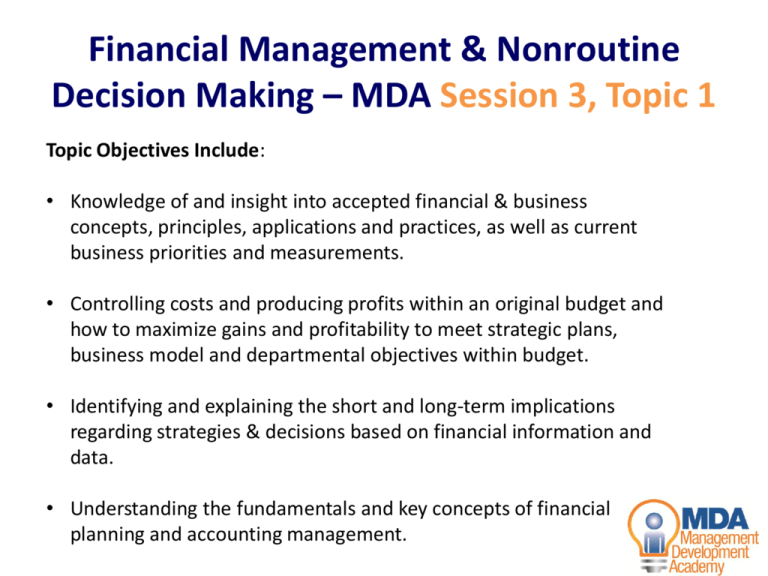
Financial Management & Nonroutine Decision Making – MDA Session 3, Topic 1 Topic Objectives Include: • Knowledge of and insight into accepted financial & business concepts, principles, applications and practices, as well as current business priorities and measurements. • Controlling costs and producing profits within an original budget and how to maximize gains and profitability to meet strategic plans, business model and departmental objectives within budget. • Identifying and explaining the short and long-term implications regarding strategies & decisions based on financial information and data. • Understanding the fundamentals and key concepts of financial planning and accounting management. Financial Management & Nonroutine Decision Making Why training is needed: It takes something more than teams and collaboration to create an organization in which everyone feels involved and committed, where they understand what they are a part of, and what the company is trying to achieve and how they affect the results. It takes a focus on what all businesses have in common, but many managers don’t know much about—the numbers! Financial Management & Nonroutine Decision Making Why this topic is important : For nonfinance managers to be successful in their jobs and be key decision makers, they need to understand and apply the basics of finance and accounting, including financial reporting and analysis, budgeting, planning, margins and forecasting. All managers should “think finance” and “learn the language” using management accounting information, financial data and metrics to drive business performance and to improve the overall capability of the organization. Financial Management & Nonroutine Decision Making Open discussion: “Pro’s & Con’s?” “What are some of the issues, benefits, concerns and difficulties you have with understanding and using your company’s financials at work?” Financial Management & Nonroutine Decision Making Situations when these skills are used on the job: Here are some work activities that you may have to use your financial and decision making acumen. Can you think of others? • • • • • • • • • • Track Revenue by Market Sector, Segment & Region Forecast Long-Term Cost Savings (Supply Base) Perform Feasibility Studies/Reviews Evaluate & Drive VaVe Opportunities Evaluate Technical Feasibility vs Cost of Part or Product to be Produced Establish/Set Inventory Levels & Turns and Forecast Demand & Usage of Inventory Order/Purchase or Approve Purchase of Materials & Supplies Report Balances & Cash Activity to Financial Institutions Determine Outsourced or Contracted Work or Projects Approve Spending for Labor, Services or Equipment/Machinery (fixed assets) Financial Management & Nonroutine Decision Making Understanding the “Big Picture” • Understand the basics of financial measurement, including the income statement, balance sheet and cash flow statement and the difference between profit and cash. • Finance is an art as well as a science. The discipline must quantify things that can’t always be quantified, so it has to rely on rules, estimates and assumptions. • A financially intelligent manager knows that the numbers can’t and don’t tell the whole story. He/she knows that the overall economy, the competitive environment, customer needs, the interdependency between departments and other variables all must be considered. What do you do, could do or should do to keep informed about financial, accounting and budgets in your company and how would it benefit your department/unit and influence your decision making?
